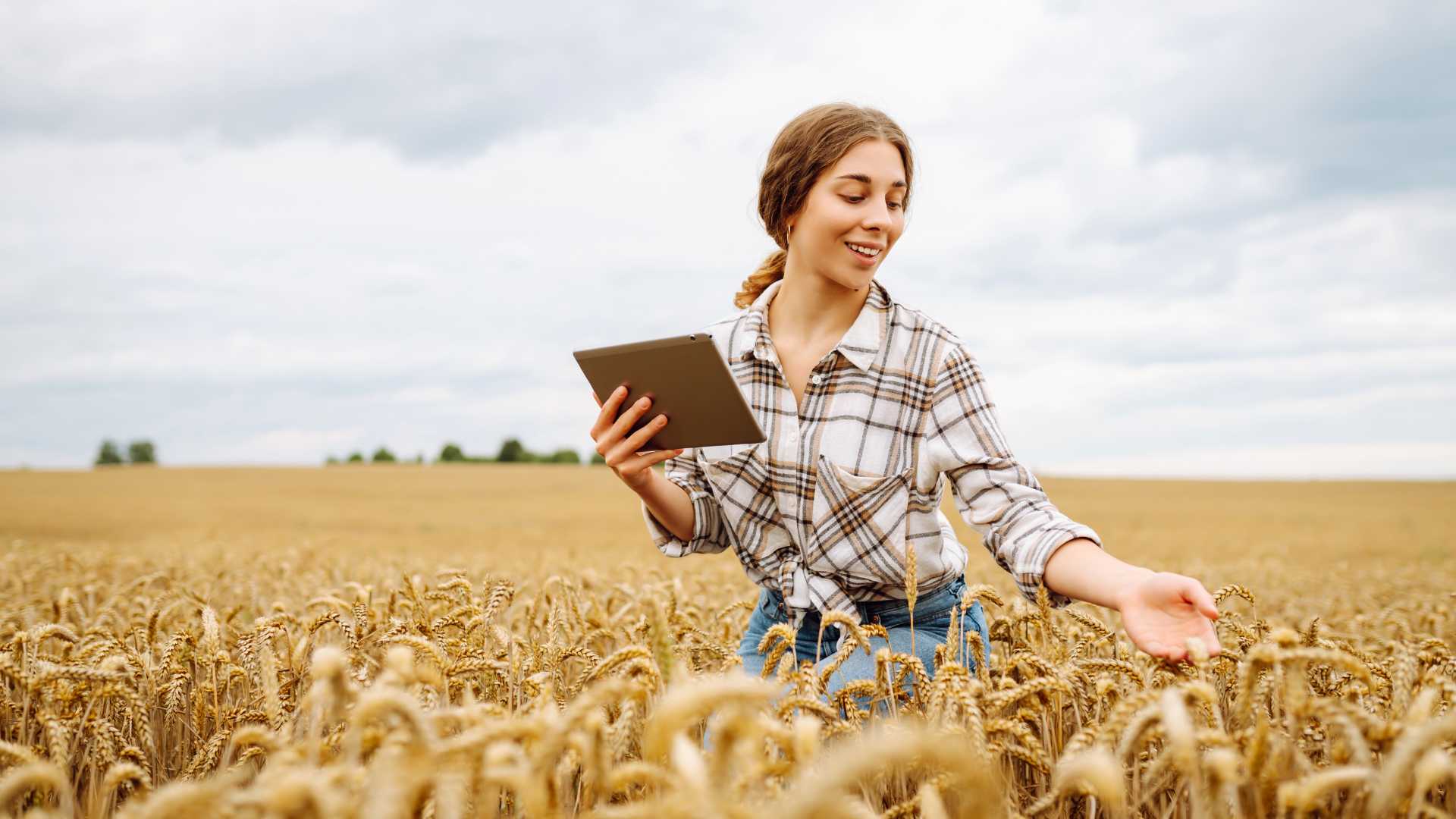

Digital tools are transforming the landscape of organic farming, leading to greater efficiency and productivity. These technologies enhance crop management, streamline resource use, and optimize overall farm operations. With innovations like precision agriculture apps, farmers can monitor soil health, track crop growth, and make data-driven decisions that benefit the environment and yield.
Farmers are increasingly leveraging drones, sensors, and data analytics to gain insights into their fields. These digital tools enable them to identify issues such as pest infestations or nutrient deficiencies early on, allowing for timely interventions. By adopting these technologies, organic farmers can reduce waste, minimize labor costs, and improve their sustainability practices.
As digital solutions continue to evolve, they offer significant opportunities for organic farmers to enhance their practices. By embracing these advancements, they can better meet the growing demand for organic products while maintaining their commitment to eco-friendly agricultural methods.
The Role of Digital Tools in Organic Farming Efficiency
Digital tools significantly enhance the efficiency of organic farming by optimizing resource usage, streamlining operations, and fostering data-driven decision-making. These advancements contribute to more sustainable practices and increased profitability in modern agriculture.
Optimizing Crop Yields and Resource Usage
Digital tools facilitate precise monitoring of soil health and crop conditions. Sensors, drones, and satellite imagery provide real-time data on moisture levels, nutrient content, and pest activity.
Farmers can use this information to apply fertilizers and water more efficiently, ensuring that crops receive exactly what they need. This precision reduces waste, minimizes environmental impact, and can lead to higher crop yields.
Moreover, advanced analytics can predict weather patterns and pests, allowing farmers to plan interventions at the right time.
Streamlining Farm Operations Through Automation
Automation plays a crucial role in simplifying farm operations. Implementing automated irrigation systems helps manage water use efficiently.
Robotic systems can handle tasks such as planting, weeding, and harvesting, significantly reducing labor costs.
These tools can operate with high precision, ensuring crops are planted at optimal distances and depths. Data integration across platforms allows farmers to coordinate these operations seamlessly, saving time and effort.
Automation also enhances the ability to respond quickly to changing agricultural conditions by providing actionable insights.
Enhancing Profitability With Data-Driven Decisions
Data-driven insights are transforming profitability in organic farming. By analyzing historical data and real-time metrics, farmers can identify trends and make informed choices.
With software solutions, farmers can track expenses, forecast market demand, and evaluate the financial impact of various practices.
This financial visibility allows for better resource allocation and investment in profitable crops or techniques.
Furthermore, understanding customer preferences through data analytics can enhance marketing strategies, directly influencing sales and profitability.
Consequently, digital tools not only optimize farming practices but also contribute to a more economically viable organic farming operation.
Precision Technologies Transforming Sustainability
Precision technologies play a crucial role in enhancing sustainability in organic farming. By leveraging innovative tools and data, farmers can optimize their practices, reduce waste, and contribute to a healthier environment.
Integrating IoT and Smart Sensors in Fields
The integration of Internet of Things (IoT) devices and smart sensors into agricultural settings allows farmers to collect real-time data. These sensors monitor various factors, such as soil moisture, temperature, and crop health.
Farmers can use this data to make informed decisions, leading to improved yield and resource management. For example, moisture sensors enable targeted irrigation, reducing water waste while ensuring crops receive adequate hydration. This optimized approach leads to greater efficiency and sustainability.
Digital Agriculture for Sustainable Practices
Digital agriculture employs advanced technologies to enhance sustainable farming practices. By utilizing information and communication technologies (ICT), farmers can access analytics and software applications tailored for agricultural use.
These tools facilitate precision farming techniques, allowing for more accurate application of fertilizers and pesticides. This targeted approach minimizes chemical runoff and promotes soil health, benefiting both crops and the surrounding ecosystem. Moreover, farmers can implement crop rotation and intercropping strategies based on data-driven insights, effectively boosting biodiversity.
Reducing Environmental Impact With Targeted Applications
Targeted application techniques, powered by digital tools, significantly reduce environmental impact. By utilizing precision farming methods, farmers can limit the use of chemical inputs.
For instance, variable rate technology enables precise application of fertilizers based on specific field areas, ensuring nutrients are only used where needed. This strategy not only conserves resources but also decreases the likelihood of chemical leaching into water supplies.
Consequently, sustainable agriculture practices become not just feasible but also practical, leading to healthier ecosystems and reduced carbon footprints.
Innovative Agricultural Technologies and Monitoring Solutions
Digital tools significantly enhance the efficiency of organic farming through the integration of advanced technologies. These innovations improve crop monitoring, resource management, and data collection processes, enabling farmers to make informed decisions.
Drones and Robotics in Organic Farm Management
Drones are increasingly utilized for crop monitoring and management. These unmanned aerial vehicles provide high-resolution imagery, allowing farmers to assess crop health and identify issues promptly.
Robotic systems also assist in tasks such as planting, weeding, and harvesting. By automating these processes, farmers can reduce labor costs and increase operational efficiency.
Key benefits of drones and robotics include:
- Timely data collection: They enable quick assessments of crop conditions.
- Precision applications: Drones can apply fertilizers and pesticides more accurately, minimizing waste.
- Labor efficiency: Robotics reduces the demand for manual labor in repetitive tasks.
Biotechnology and Data Analytics for Crop Health
Biotechnology contributes to crop resilience through the development of genetically modified seeds. These crops often exhibit improved resistance to diseases and adverse weather conditions, essential for organic farming sustainability.
Moreover, data analytics plays a critical role in monitoring crop health. By collecting data from various sources, farmers gain insights into soil health, nutrient levels, and pest populations.
Utilizing data analytics can result in:
- Improved decision-making: Data-driven strategies enhance yield predictions and pest management.
- Customized inputs: Farmers can tailor their agricultural practices based on specific data findings.
- Sustainability: Through monitoring and analytics, resource usage can be optimized, leading to more sustainable farming.
Efficient Irrigation Systems and Tractors
Modern irrigation systems, such as drip and sprinkler systems, allow for precise water delivery to crops. These efficient systems minimize water waste and ensure that plants receive the necessary hydration.
Tractors equipped with GPS technology also enhance efficiency in organic farms. These tractors help with precise field mapping and resource allocation, making operations smoother.
Key advantages include:
- Water conservation: Advanced irrigation systems reduce excessive water use.
- Accuracy: GPS-enabled tractors improve accuracy in planting and field management.
- Cost-effectiveness: Efficient systems can lower operational costs in the long run.
Advanced Data Collection and Mining Techniques
Advanced data collection methods, including IoT sensors, provide real-time information about soil conditions and crop status. This data helps in continuous monitoring, leading to actionable insights.
Data mining techniques analyze vast datasets to identify patterns and trends. Farmers can use this information to optimize planting schedules and resource application.
Essential aspects to consider are:
- Real-time insights: Immediate data helps in timely responses to crop needs.
- Predictive analytics: Data mining can forecast potential challenges in farming.
- Comprehensive understanding: Engaging with data allows for a holistic view of farm operations.
The Future of Digital Transformation in Organic Food Production
Digital transformation is shaping the future of organic food production by enhancing efficiency and sustainability. Key areas of focus include promoting biodiversity through advanced technologies and fostering knowledge sharing among farmers via digital networks.
Promoting Biodiversity Through Technology
Emerging digital tools play a crucial role in promoting biodiversity within organic farming. Techniques such as precision agriculture utilize the Internet of Things (IoT) to monitor soil health, crop variety, and pest populations more effectively.
Farmers can use drones for aerial surveillance, allowing them to identify areas with high biodiversity levels or those needing attention. Advanced data analysis enables targeted interventions, which help maintain healthy ecosystems.
This approach not only enhances productivity but also ensures the preservation of native species, supporting both the environment and the agricultural ecosystem.
Leveraging Digital Networks for Knowledge Sharing
Digital networks, including platforms like LinkedIn, provide invaluable resources for organic farmers. These platforms enable the sharing of best practices, innovative farming techniques, and case studies that can be applied in diverse agricultural settings.
Farmers can access webinars, engage in forums, and join groups focused on organic practices. This exchange of knowledge facilitates a collaborative atmosphere amongst producers, leading to improved farming techniques and innovative problem-solving.
Such digital collaboration ultimately contributes to a more sustainable and efficient ecosystem in organic food production.
Trends in Food Production and Market Integration
The integration of digital technologies is paving the way for new trends in food production. Smart farming methods leverage data analytics to optimize crop yields while simultaneously reducing environmental impact.
Increased consumer demand for organic products drives farmers to adopt these technologies for better market integration. With data-driven insights, farmers can predict market trends and consumer preferences, enabling them to adapt their offerings accordingly.
Moreover, transparent supply chains strengthened through digital means enhance consumer trust, promoting organic products’ visibility in the market. Such trends signal a progressive shift towards a more connected and efficient organic food system.
